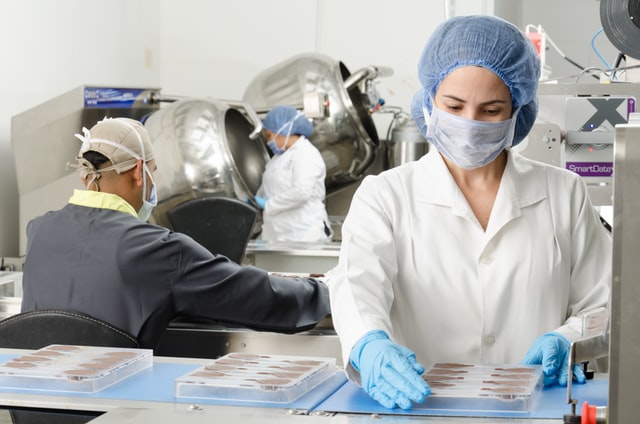The Westland/ Hallmark Beef recall in 2008, is the largest one in the history of the United States. It cost the company nearly $500 million in settlement and forced it to recall two years’ worth of processing and production. Even though none of the consumers got sick, the United States Department of Agriculture took action after it came across the horrid practices in its processing plant. The Cargill Ground Turkey killed one consumer, made 75 others sick, and led the company to recall 35 million pounds of turkey.
These are just two of the most damaging recalls in the history of the country. There are plenty of other cases, including Hillandale Farms egg recall in 2010, infecting 1900 consumer, Topps Meats frozen ground beef patties in 2007, leading to a recall of processed meat equal to a year-long production. That indicates how critical food safety is for both the consumer’s well-being and an F&B company’s reputation.
Given the emergence of modern consumers, who are much aware and educated about their safety, and strict regulations from the FDA Food Safety Modernization Act, the companies are working to improve food safety. While the companies try their best to implement safety protocols across their operations, the authorities keep a check on what is being distributed in the market.
To ensure only high-quality products are distributed in the market, the food authorities carry out Food Safety Assessments (FSA). These assessments are audits that focus on the inspection of production plants to check whether the food safety procedures are effective or not.
Understanding Food Safety Assessments
Food Assessments are a form of audits that may take place randomly, without prior notice, or done in response to an outbreak of a foodborne illness. The Food Safety and Inspection Service (FSIS) under the United States Department of Agriculture is responsible for conducting these assessments. The purpose of FSAs is to make things simple and convenient for both the companies and the consumers.
Considering the past F&B product recall events, it is clear that this situation negatively impacts both consumers and the company. The consumer may get severely ill, and a company may never regain its lost reputation. Recalls are one of the biggest challenges that companies have to deal with in the F&B industry. The damage that recalls has caused convince FSIS to conduct random checks on the food safety protocols being implemented in different companies across the industry.
These audits help authorities decide whether they need to take any action against a company for its negligence or non-compliance or not. Its purpose does not end with this. Instead, FSAs are carried out to help companies improve their food safety systems. With these assessments, FSIS helps a company identify loopholes in the safety system. This contributes to reduced recall rates, saving both the company and the consumers from significant damage.
The assessment is carried out by an FSIS Enforcement Investigations & Analysis Officer (EIAO). This specific individual is responsible for analyzing the quality of food products that a company is distributing in the market. From the HACCP to the SSOPs, an EIAO reviews all food safety documents to complete the audit. Only after an audit is complete, a company gets to know if their safety protocol implantation is effective enough or not.
If these inspection officers detect even the slightest loophole in the system and get a hint of negligence, it can put the company in some serious trouble. As per the guidelines set by the authorities, every federally inspected establishment is to be visited by an inspection officer every four years. This does not mean that an FSA cannot be carried out before this time period. There are several reasons to request an FSA. These reasons may include an outbreak of foodborne illnesses, detection of pathogens in lab reports, and evaluating if an F&B company’s plant has reassessed its HACCP plan and SSOP.
Apart from this, a company may also get visited by an inspection officer as a result of being randomly selected by the officials. This is a major concern for companies. Detection of even the slightest act of negligence can lead to a recall and imposition of a huge fine. This is why it is important to be always prepared for an FSA.
Preparing for an FSA
Despite implementing strict safety protocols, many companies end up paying huge fines or catering to widescale recalls. Regardless of how efficient a company is, some loopholes need to be regularly addressed. When an EIAO randomly visits the company without prior notice and is able to detect that particular loophole, there is nothing that can save the company from a fine or, in worst cases, recalls.
To be ready for an FSA at all times, companies must go through the EIAO draft tools. These tools are available on FSIS’s official website. These tools and guides are prepared to assist the EIAOs in effectively inspecting the companies. Being aware of these tools helps not only EIAOs but also the companies.
These tools help companies know what they need to expect from an FSA. It helps them be prepared at all times. This is one of the smartest ways to be ready for the inspection at all times.
While companies are preparing for the FSAs, all company employees must be on the same page and have a proper understanding of the entire food safety system of the company.
Key Lessons for Plant Operators
The key for the F&B plant operators is to always be prepared for an FSA. During an FSA, it is to be understood that not all EIAOs are the same, and their level of understanding is different. The companies must have everything documented. It can be very helpful during an FSA.
In addition to this, when the person being questioned does not know the answer, it is best to accept it. People can later do their homework and answer the question. Being stuck with a question does not mean the end; EIAOs do give this kind of flexibility. One important thing here is not answering the question until or unless one has completely understood it.
Not doing so can put the wrong impression on the officer. Companies must not look at the officers as a threat; instead, employees can ask them for guidance on food safety-related concerns, saving them in the future.
Food Safety assessments that are usually looked upon as a stressful situation can actually help companies keep up with their reputation in the market. It can also save them from a hefty fine and drastic situation such as that of a recall.




